Whisper it, but British workers seem to be getting a pay rise. This morning’s update from the Office for National Statistics reveals that average regular pay (which excludes bonuses) was up by 7.8 per cent between May and July this year, unchanged from the last three-month period. Wage growth has stayed a percentage point above headline inflation – at 6.8 per cent on the year in July – which suggests a relatively small, but meaningful real-terms pay raise.
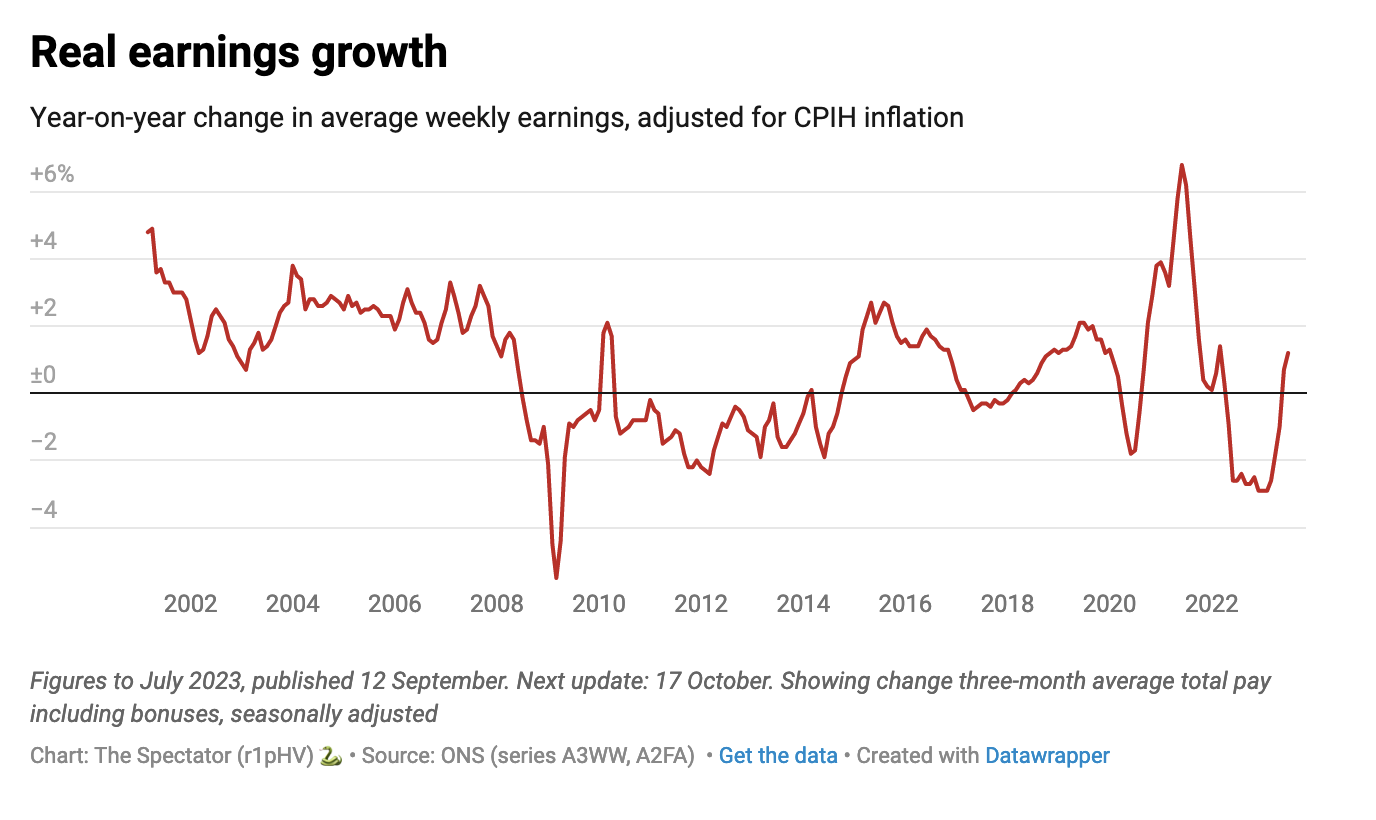
So after more than a year of real-terms pay cuts – as average wage hikes kept falling behind inflation – some workers may finally be feeling the slightest bit of relief as their purchasing power rises once again. But not everyone will be pleased. Today’s figures will weigh heavily on the Bank of England, which is mulling over another rate rise later this month. The next inflation update, out next week, will help guide the Bank’s decision-making – but so will today’s labour market update. The Bank’s governor Andrew Bailey has consistently issued warnings about a ‘wage price spiral’, which he believes could lead to a secondary round of price hikes.
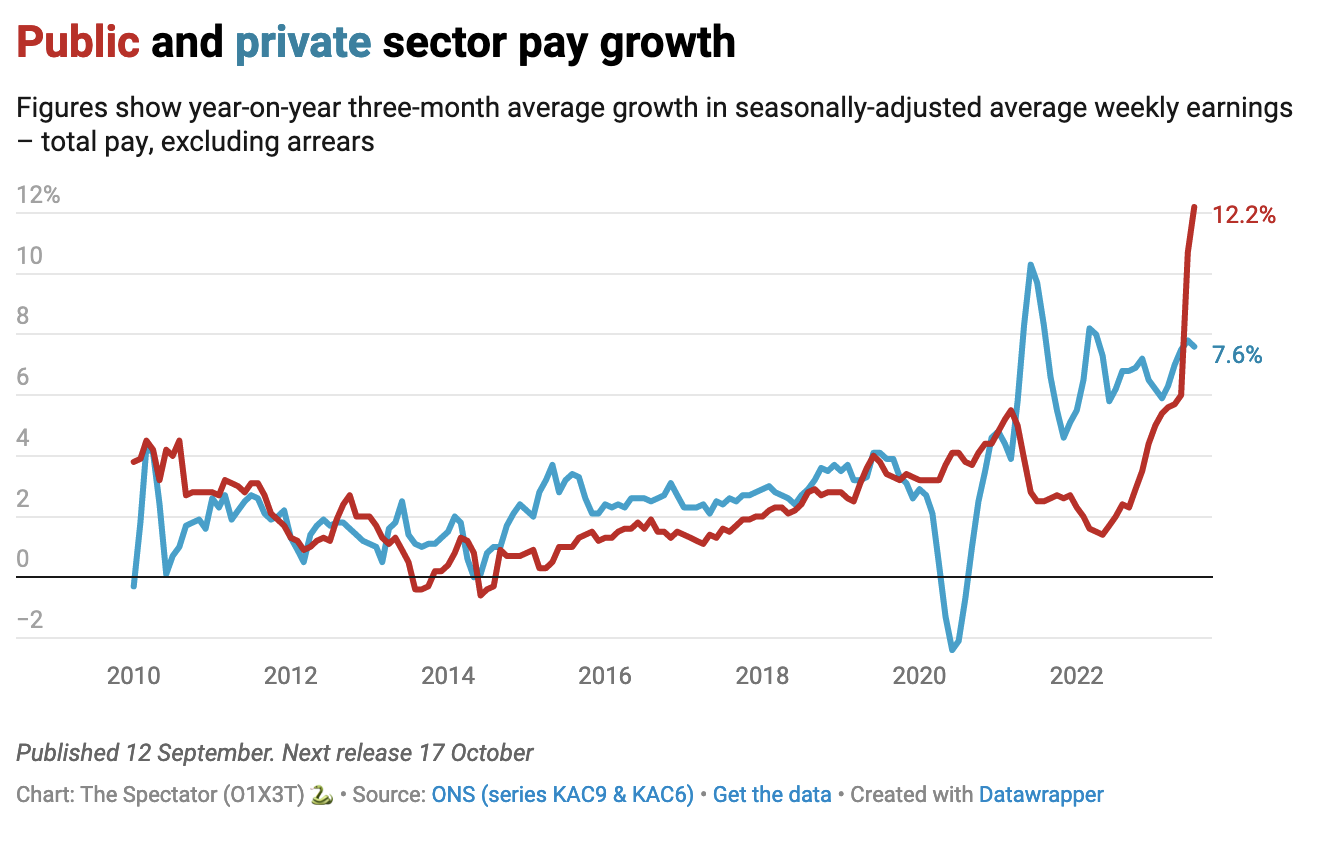
Not all the data is as dramatic as it first looks. The spike in public sector pay – up 12.2 per cent – is largely due to the one-off bonuses awarded to NHS workers this summer which will not be repeated in following updates. Furthermore, the broader theories around wage-price spirals are heavily disputed (some of those arguments I lay out here). Not only is today’s relationship between wages and inflation nothing like what it was in the 1970s (when wages could outrun inflation at over 20 per cent), there is also a strong case to be made that the real problem remains the vast increase to the money supply.
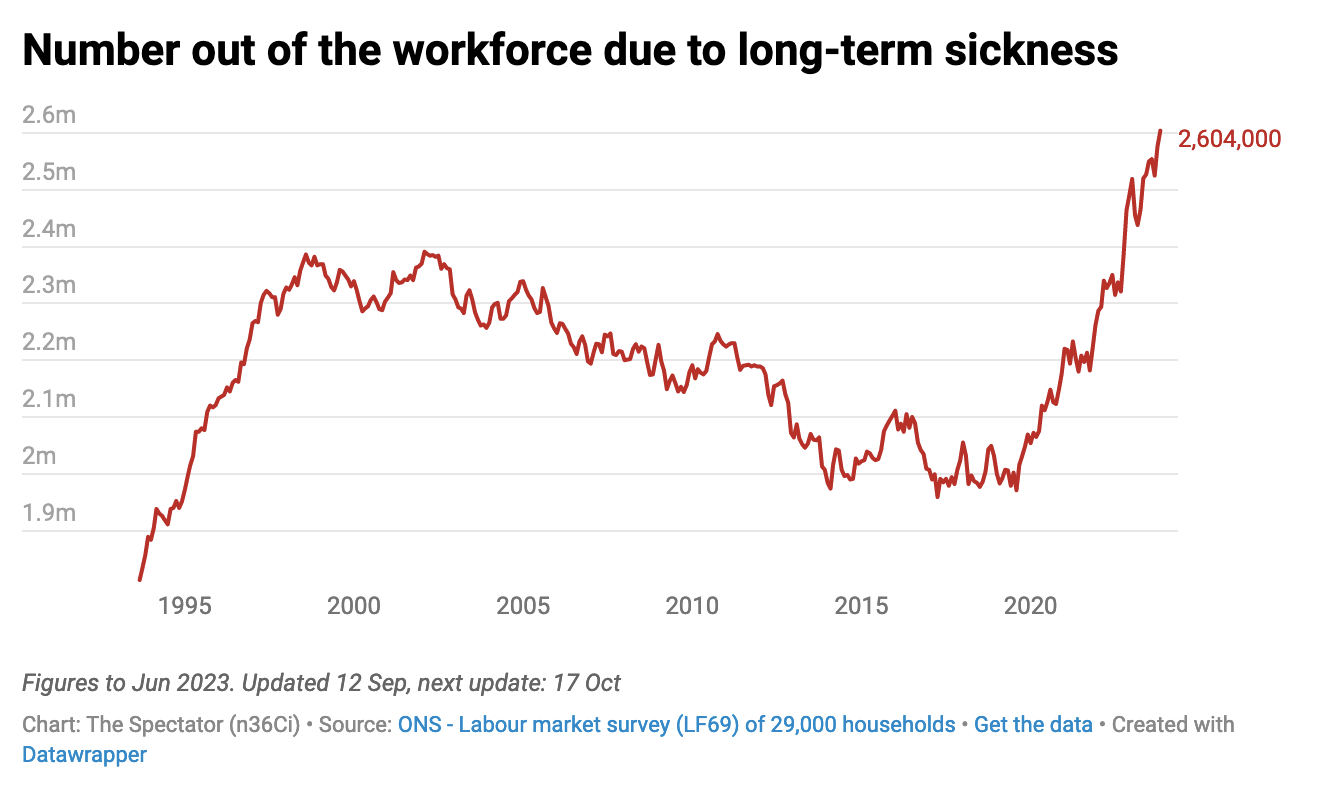
Still, we know that the economy remains too resilient for the BoE’s liking, which would suggest another rate hike is on the way (following the wage news this morning, Capital Economics predicts another 0.25 hike, taking the base rate to 5.5 per cent). Speaking to the Treasury Select Committee last week, Bailey said that Britain had moved on ‘from a period… where it was clear rates needed to rise going forward,’ but he was careful not to rule out another consecutive rate hike, if his Monetary Policy Committee thought the data justified it.
But relatively small wage rises are by no means the most worrying news in today’s update. People out of work due to long-term sickness hit a new record high of over 2.6 million. Their absence is acutely felt: while job vacancies have finally fallen below one million – for the first time in over two years – these huge gaps in the labour force are still taking their toll on the economy and contributing to higher inflation.
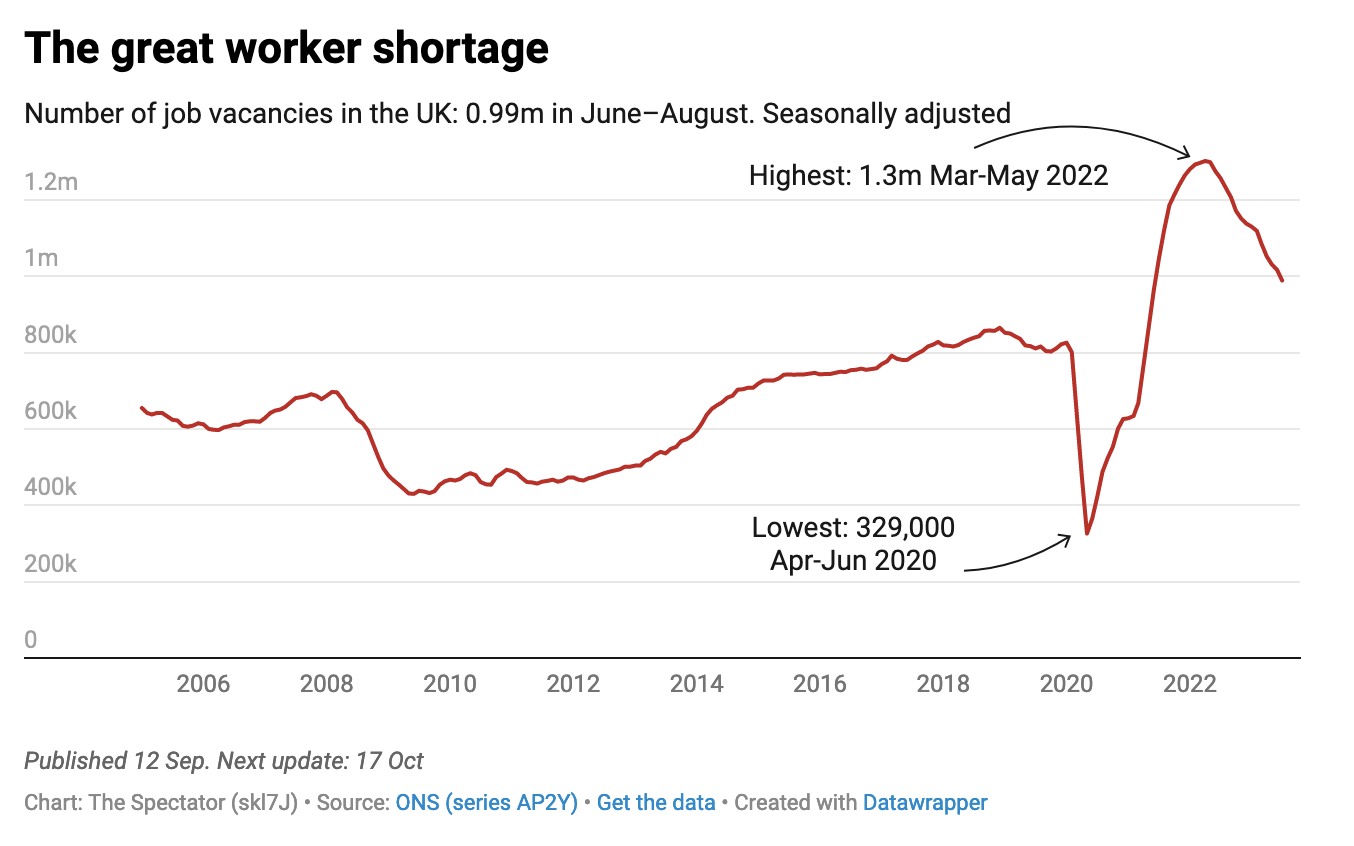
This record high comes at a time when No. 10 and the Treasury are rumoured to be considering changes to levels of uprating for benefits and the state pension. Speaking to Bloomberg TV yesterday, chancellor Jeremy Hunt warned more broadly that ‘we have to be careful not to pump extra money into the economy, into people’s pockets as that will pump up inflation.’ Now just a little over two months out from his next fiscal update, Hunt will be well aware that the government might have to find billions more to make good on the triple-lock promise (to bring pensions in line with inflation, average wages or 2.5 per cent – whichever is highest). This time round, that could be wages – but it’s an increase ministers are hesitant to usher in.
Got something to add? Join the discussion and comment below.
Get 10 issues for just $10
Subscribe to The Spectator Australia today for the next 10 magazine issues, plus full online access, for just $10.


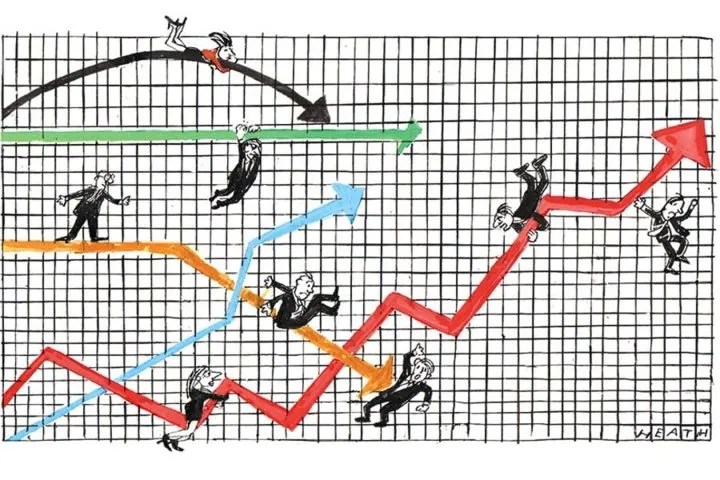

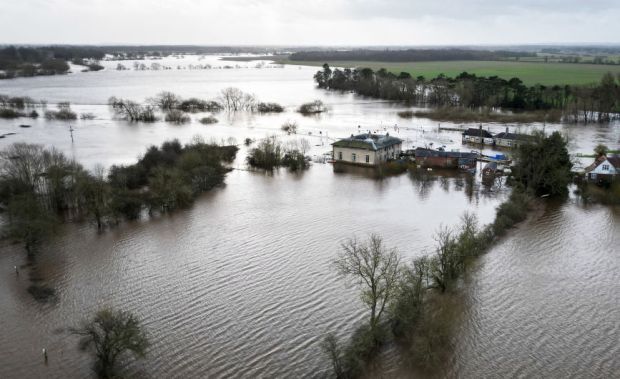
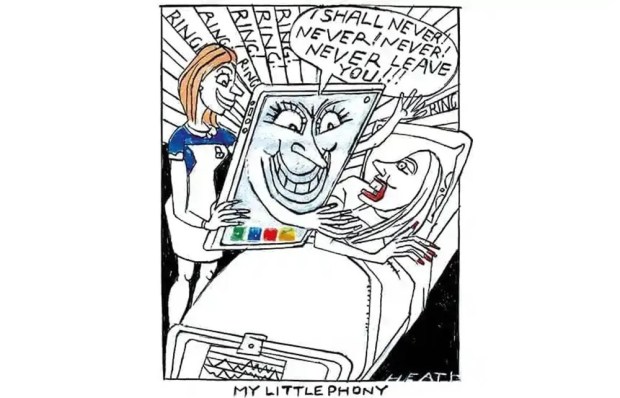
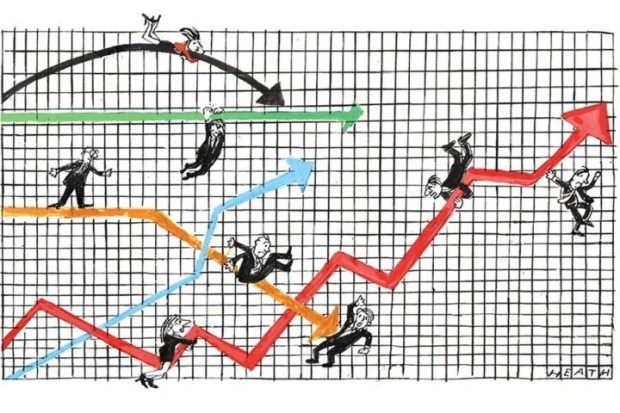
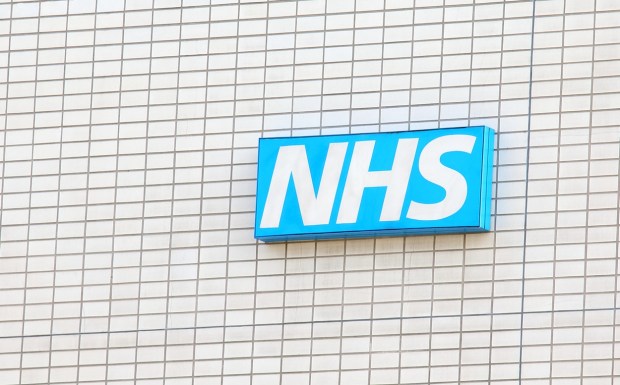













Comments
Don't miss out
Join the conversation with other Spectator Australia readers. Subscribe to leave a comment.
SUBSCRIBEAlready a subscriber? Log in